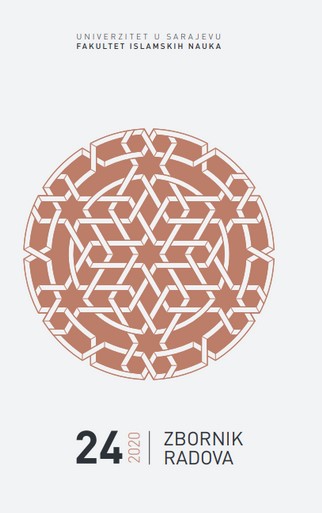Ontogeneza glavnog junaka u Ibn Ṭufaylovom Ḥayy ibn Yaqẓānu
The Ontogenesis of the Protagonist in Ibn Tufayl’s Ḥayy ibn Yaqẓān
Author(s): Samedin KadićSubject(s): Ethics / Practical Philosophy, Islam studies, Other Language Literature, Philosophy of Middle Ages, Existentialism, Middle-East Philosophy, Philosophy of Religion, 6th to 12th Centuries, History of Religion
Published by: Fakultet islamskih nauka u Sarajevu
Keywords: Ibn Ṭufayl; Ḥayy ibn Yaqẓān; Asāl; Salamān; faith; cognition; religion;
Summary/Abstract: This text presents the development of the main character in the work Ḥayy ibn Yaqẓān from his birth, through the processes of learning and (self)cognition, to his encounter with civilization. The text examines the possibilities of Islamic anthropology within the frame of the mentioned development. In order to confirm the premise that all people are by nature good and, therefore, believers, Ibn Ṭufayl decides to make an experiment of isolated fiṭrah in the natural environment in order to protect it from any cultural influence. The isolation is radical. Ḥayy is no genius, he is an ordinary man. His faith is preserved fiṭrah. Religion, on the other hand, is a routinized faith. Religion, as an immanent social phenomenon, has the potential to corrupt faith, because culture distorts the fiṭrah. Hence, Ibn Ṭufayl’s text reveals some of the most intrinsic tensions of the muwaḥḥidūn project itself: the fear of trivializing and deforming living faith in a social conglomerate of various religious forms.
Journal: Zbornik radova Fakulteta islamskih nauka u Sarajevu
- Issue Year: 2020
- Issue No: 24
- Page Range: 237-263
- Page Count: 27
- Language: Bosnian

